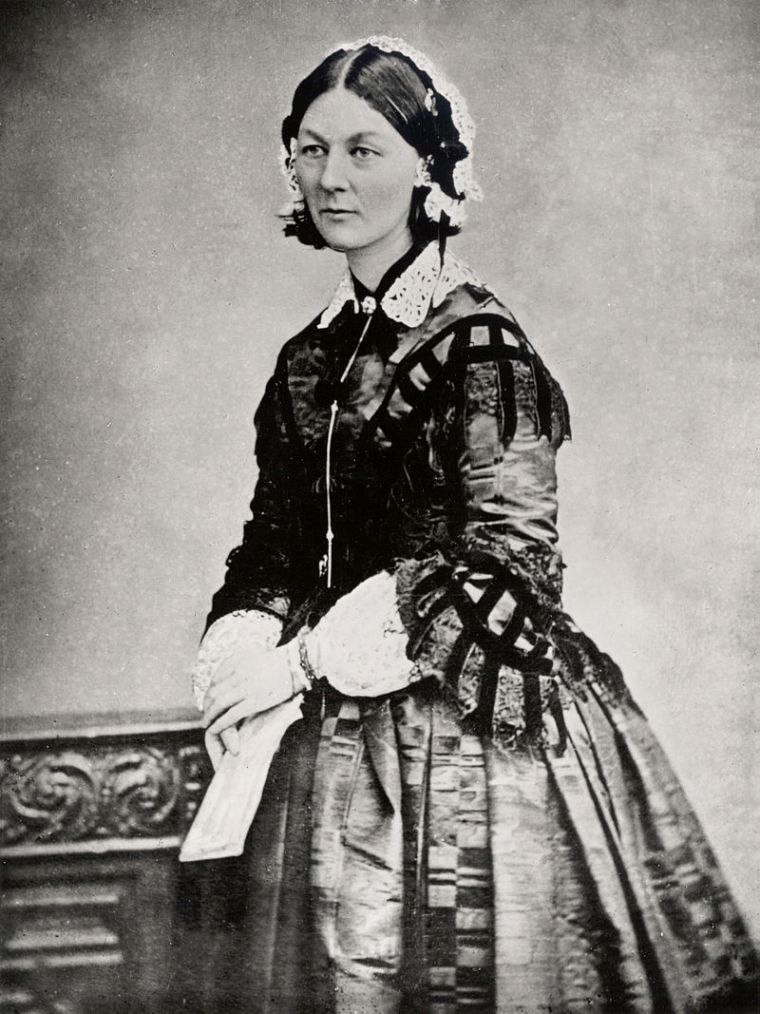'God has spoken to me and called me to serve.' 12 inspiring Florence Nightingale quotes to mark her birthday

Florence Nightingale, who was born on May 12, 1820, in Florence in Italy, was known as 'The Lady With The Lamp' after a report from the Crimean War in The Times described her as a 'ministering angel', making her rounds late at night, 'with a little lamp in her hand'. She had taken a group of nurses to Ukraine to minister to the French and British soldiers wounded in the war against Russia. Profoundly changed by her experiences in the field, when she returned to England she set up the Nightingale School for nurses at St Thomas' Hospital, London, and thus laid the foundations of modern professional nursing. She also worked with the Liverpool merchant and philanthropist William Rathbone, a Quaker who became a Unitarian, to set up district nursing with the founation of a nursing school in Liverpool. He is reported to have written: 'In any matter of nursing Miss Nightingale is my Pope and I believe in her infallibility.'
From an upper class family, she defied their expectations when she did not marry, and decided to spend her life in service and ministry to the sick and poor. This decision was rooted in the Gospel. She survived many serious episodes of illness herself, and lived to the age of 90.
1. 'God has spoke to me and called me to His service.' Writing in February 1837 when she began to understand the direction her life would take.
2. 'It may seem a strange principle to enunciate as the very first requirement in a Hospital that it should do the sick no harm.' First sentence of her preface to 'Notes on Hospitals', written in 1859.
3. 'I think one's feelings waste themselves in words; they ought all to be distilled into actions, and into actions which bring results.' Letter to Mary Clarke in 1844, quoted by Sir Edward Tyas Cook, 'The Life of Florence Nightingale'.
4. 'No man, not even a doctor, ever gives any other definition of what a nurse should be than this – "devoted and obedient." This definition would do just as well for a porter. It might even do for a horse. It would not do for a policeman.' Notes on Nursing, written in 1860.
5. 'Beggars in the streets of London were at that time leading the lives of princes, compared to the life of our soldiers in the Crimea when I arrived on the scene with thirty-six nurses.' 'Little Chats With Big People', The Scrap Book, from 1908.
6. 'The account he gives of nurses beats everything that even I know of. This young prophet says that they are all drunkards, without exception, Sisters and all, and that there are but two whom the surgeon can trust to give the patients their medicines.' Writing about a young surgeon in a letter to Miss H. Bonham Carter, cited by Edward Tyas Cook, 'The Life of Florence Nightingale'.
7. 'The only English patients I have ever known refuse tea, have been typhus cases; and the first sign of their getting better was their craving again for tea.' From: 'Tea, Coffee, and Cocoa for the Sick', Scientific American, 1860.
8. 'The true foundation of theology is to ascertain the character of God. It is by the aid of Statistics that law in the social sphere can be ascertained and codified, and certain aspects of the character of God thereby revealed. The study of statistics is thus a religious service.' Cited in 'Games, Gods, and Gambling: A History of Probability and Statistical Ideas', 1962.
9. 'What the horrors of war are, no one can imagine. They are not wounds and blood and fever, spotted and low, or dysentery, chronic and acute, cold and heat and famine. They are intoxication, drunken brutality, demoralization and disorder on the part of the inferior… jealousies, meanness, indifference, selfish brutality on the part of the superior.' Letter from the Crimean war to her family.
10. 'The good of an organisation depends on every individual who is in it. School, hospital, coffee-rooms, institutions, district nursing must depend on the living life and love which are put into them.' From her introduction to 'The History and Progress of District Nursing' by William Rathbone.
11. 'It is such a blessing to have been called, however unworthy, to be the handmaid of the Lord.' One of many references to Luke 1:38 about her calling to nursing. Museum of the Bible.
12. 'Unless I am, a fellow-worker with Divine Power, who is working up all our poor little puny efforts into a whole ― a whole of which our efforts are only parts, and worth anything only in as much as they are parts ― shall I work at all?
To be a fellow-worker with God is the highest inspiration of which we can conceive man capable. But how can we be fellow-workers with God if we do not know His plan?' Note of Interrogation by Florence Nightingale.











